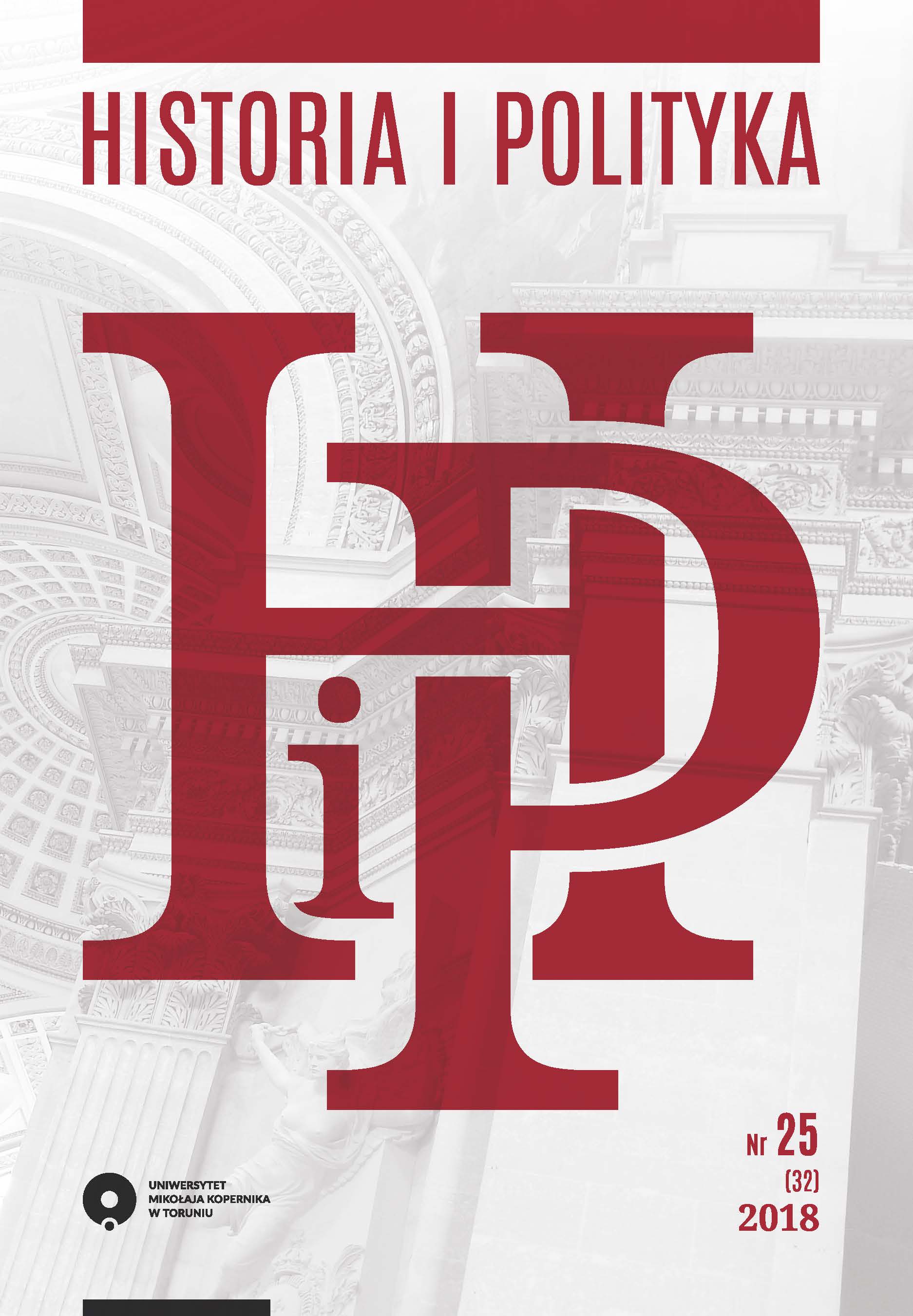System hegemoniczny w ujęciu realizmu strukturalnego
DOI:
https://doi.org/10.12775/HiP.2018.026Słowa kluczowe
unipolaryzm, hegemonia, równowaga sił, neorealizm, Waltz, MearsheimerAbstrakt
The paper presents the reflections of representatives of American neorealism on the topic of unipolar distribution of power in the international system. The author discusses the concepts of the balance of power and hegemonic stability, which served as foundations on which the referenced authors formulated own hypotheses regarding potential for durability and peacefulness of a system dominated by one superpower. The article also presents opinions of various neorealists on the international situation post-Cold War and distribution of power in the modern world.Bibliografia
Czaputowicz, J. (2008). Teorie stosunków międzynarodowych. Krytyka i systematyzacja. Warszawa: Wydawnictwo Naukowe PWN.
Déclaration de M. Hubert Védrine, ministre des affaires étrangères, sur les relations internationales depuis l’effondrement de l’URSS, les équilibres géostratégiques et la sécurité internationale, Paris le 3 novembre 1999. Pobrane z: http://discours.vie-publique.fr/notices/993002965.html.
Gałganek, A. (1992). Zmiana w globalnym systemie międzynarodowym. Supercykle i wojna hegemoniczna. Poznań: Wydawnictwo Naukowe UAM.
Kondrakiewicz, D. (2015). Między porządkiem a chaosem. Fazy nierówności systemu międzynarodowego. Lublin: Wydawnictwo Uniwersytetu Marii Curie-Skłodowskiej.
Krauthammer, C. (1990). The Unipolar Moment. Foreign Affairs, 70, 1: America and the World 1990/91, 23–33. DOI: 10.2307/20044692.
Mearsheimer, J.J. (1990). Back to the Future. International Security, 15, 1, 5–56. DOI: 10.2307/2538981.
Mearsheimer, J.J. (2001). The Tragedy of Great Power Politics. New York: W.W. Norton & Company.
Mearsheimer, J.J. (2004). Why China’s Rise Will Not Be Peaceful. Pobrane z: http://mearsheimer.uchicago.edu/pdfs/A0034b.pdf.
Monteiro, N.P. (2014). Theory of Unipolar Politics. New York: Cambridge University Press.
Morgenthau, H.J. (1948). The Balance of Power. W: K. Thompson (1895) (red.), Realist Tradition Theories (s. 237–357). Pobrane z: https://blackboard.angelo.edu/bbcswebdav/institution/LFA/CSS/Course%20Material/SEC6302/Readings/Lesson_5/Morgenthau.pdf.
Tomczyńska, A. (2012). Czy teoria hegemonicznej stabilności jest teorią polityki zagranicznej? W: E. Haliżak, M. Pietraś (red.), Poziomy analizy stosunków międzynarodowych (s. 177–192). T. 2, Warszawa: Wydawnictwo Rambler.
Waltz, K. (2000). Structural Realism After the Cold War. International Security, 25, 1, 5–41.
Waltz, K. (2010). Struktura teorii stosunków międzynarodowych. Warszawa: Wydawnictwo Naukowe SCHOLAR.
Waltz, K. (1993). The Emerging Structure of International Politics. International Security, 18, 2, 44–79.
Wohlforth, W. C. (1999). The Stability of a Unipolar World. MIT Press Journal. Pobrano z: https://www.jstor.org/stable/2539346?seq=1#page_scan_tab_contents.
Pobrania
Opublikowane
Jak cytować
Numer
Dział
Licencja
Uniwersytet Mikołaja Kopernika w Toruniu respektuje prawo do prywatności i ochrony danych osobowych autorów.
Dane autorów nie są wykorzystywane w celach handlowych i marketingowych. Redaktorzy i recenzenci są zobowiązani do zachowania w poufności wszelkich informacji związanych ze złożonymi do redakcji tekstami.
Autor, zgłaszając swój tekst wyraża zgodę na wszystkie warunki i zapisy umowy licencyjnej (określającej prawa autorskie) z Uniwersytetem Mikołaja Kopernika w Toruniu.
Statystyki
Liczba wyświetleń i pobrań: 841
Liczba cytowań: 0



